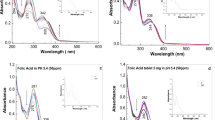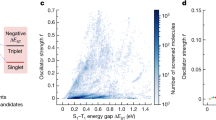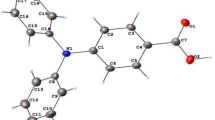Abstract
THE tungstates of calcium, strontium, magnesium and zinc, and the molybdates of calcium are known to show luminescence upon excitation by cathode rays or short-wave ultra-violet radiation. It is commonly assumed that this luminescence is characteristic of the tungstate and molybdate groups. If this is true, there must be a reason why other tungstates and molybdates are found to be non-luminescent. Studying a number of different tungstates and molybdates in this Laboratory, we have found this reason to be the temperature-quenching.
This is a preview of subscription content, access via your institution
Access options
Subscribe to this journal
Receive 51 print issues and online access
$199.00 per year
only $3.90 per issue
Buy this article
- Purchase on Springer Link
- Instant access to full article PDF
Prices may be subject to local taxes which are calculated during checkout
Similar content being viewed by others
References
Hüniger, cited by Birus, K., Ergeb. Exakt. Naturw., 20, 221 (1942). Hill, C. G. A., Trans. Farad. Soc., 42, 666 (1946).
Kröger, F. A., "Some Aspects of the Luminescence of Solids" (Elsevier Publishing Co., Amsterdam and New York, 1947), in the press.
Author information
Authors and Affiliations
Rights and permissions
About this article
Cite this article
KRÖGER, F. Fluorescence of Tungstates and Molybdates. Nature 159, 674–675 (1947). https://doi.org/10.1038/159674b0
Issue Date:
DOI: https://doi.org/10.1038/159674b0
This article is cited by
-
Enhanced blue emission of CaWO4 in BaWO4/CaWO4 nanocomposite
Journal of Materials Science: Materials in Electronics (2020)
-
Enhanced photoluminescence of CoWO4 in CoWO4/PbWO4 nanocomposites
Journal of Materials Science: Materials in Electronics (2018)
Comments
By submitting a comment you agree to abide by our Terms and Community Guidelines. If you find something abusive or that does not comply with our terms or guidelines please flag it as inappropriate.



